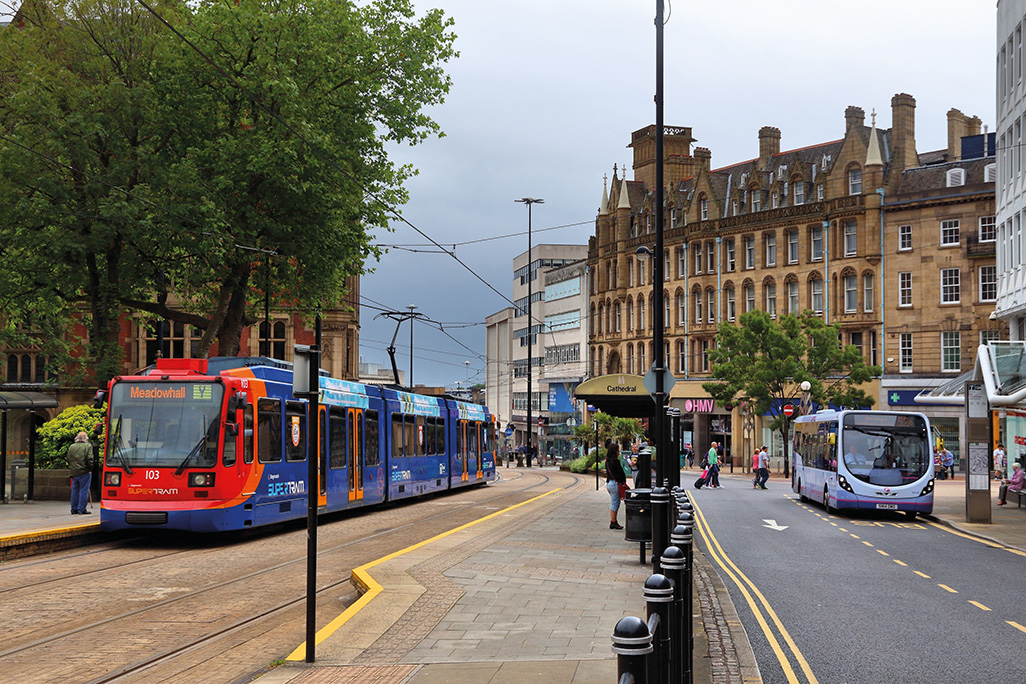Little separates UK’s two main parties when it comes transport policy, writes our Westminster insider
Somebody asked me recently if I could tell them what the difference was between the Conservatives’ and Labour’s public transport policies. I couldn’t. In fact, once you strip away any political rhetoric, the reality is there really is no difference in all practical ways. The difference between the two main parties on wider policy agendas, especially on the core issues of tax and spend, is negligible at best.
As we enter what could be described as the home straight in the run-up to the next general election, widely expected to be in autumn next year, the electorate is going to struggle to spot the difference between the Conservative and Labour policy agendas unless Rishi Sunak and his Chancellor, Jeremy Hunt, open up real dividing lines by, for example, a material cut in taxation. However, all the language coming out of the Chancellor’s office is that tax cuts are not on the table. This is a problem for the Conservatives as, after 13 years in government, it’s increasingly likely that the electorate will vote on the basis of “giving the other lot a chance” rather than based on any distinctive policy agendas. Given all the problems facing the government, many of which are self-inflicted, it would be no surprise if the UK public felt it was time for a change.
The problem for Keir Starmer is that, assuming he does form the next government, he will almost certainly inherit a sluggish economy. When Tony Blair won the 1997 General Election, he inherited an economy that was booming, a golden legacy bequeathed by John Major’s dying administration. Mr Starmer will have no such luxury and I have a hunch that a new Labour administration will rapidly run into choppy waters and discover that being in government is no bed of roses. If the Conservatives manage to keep Labour’s majority to the mid to high-twenties, which despite Labour’s lead in the polls seems entirely possible, Mr Starmer may find he is a one-term Prime Minister.
Rural decline
Back to buses. Actually, there’s not a great deal to comment on, although I did hear a rumour a couple of weeks ago that one major bus operator was looking to exit the UK market but was failing to find an interested buyer. If this is true, that speaks volumes about the state of the UK market. Indeed, the Labour Party has recently claimed that 50% of bus routes have been lost in England since 2010. The County Councils Network has also published a report saying that one in four buses have disappeared in county and rural areas between 2010 and 2022, and that rural areas have seen a decline of 44% of bus users over the same period. With bus operators now largely dependent on government subsidy for their survival, why would anyone want to buy a UK bus operation unless they were buying into a franchised market with a guaranteed return, even if that return may be modest?
No plan
Mind you, it’s all very well the Labour Party bemoaning the decline in bus usage — something that’s not unique to Conservative administrations. Labour has failed to explain how it will reverse this trend. Labour’s shadow transport spokesperson, Louise Haigh, says the party would oversee the biggest revolution in bus policy for more than 40 years, but without explaining how, or how much money a Labour government would allocate to the bus industry to make this happen.
When Tony Blair put John Prescott in charge of transport policy in 1997, there was an expectation that he would come riding to the industry’s rescue — as Labour supporters saw it — by ending deregulation and turbo-charging the industry. The whitepaper From Workhorse to Thoroughbred (remember that?) talked about unlocking the “enormous potential” of the bus. It didn’t happen. I suspect we may see history repeat itself should Labour win the next election. The reality is that, unless a government of any political persuasion is prepared to subsidise the bus industry to a considerably greater extent than has historically been the case and is prepared to introduce measures which materially increase the cost of motoring, which is all looking increasingly unlikely, then I fear the bus industry will always struggle to deliver the step-change in patronage levels that politicians so love to talk about.
Mr Starmer has, of course, carried out a wide-ranging reshuffle of his shadow cabinet and of a number of more junior positions. Ms Haigh stays put as shadow transport secretary and, although we have a new shadow minister for rail in Stephen Morgan, the MP for Portsmouth South since 2017, Simon Lightwood remains as the shadow buses minister.
Labour optimism?
Meanwhile, the party conference season will soon be upon us, starting with the Liberal Democrats on 23 September. For the first time in living memory, Labour’s conference (8-11 October) is last, following the Conservatives (1-4 October).
I wonder how tempted Mr Starmer will be to echo the famous comment by the leader of the then Liberal Party, David Steel, to delegates at the Liberal Party assembly in 1981 to “go back to your constituencies and prepare for government”. That followed an astonishing result in the Croydon North West by-election a few months earlier when the party secured a 29% swing in its favour and took the constituency off the Conservatives, knocking Labour into third place. The by-election took place shortly after the formation of the Social Democratic Party (SDP) by four disenchanted senior Labour MPs and with whom the Liberal Party had entered into an electoral pact, transforming the political landscape.
Mr Steel’s optimism at the time seemed well-founded, with Labour badly disunited under Michael Foot’s leadership, and Margaret Thatcher’s recently elected government deeply unpopular. Sorry for the history lesson but, given what subsequently happened to the fortunes of the SDP and the Liberal Party, Mr Starmer will be well advised to be more cautious!



























